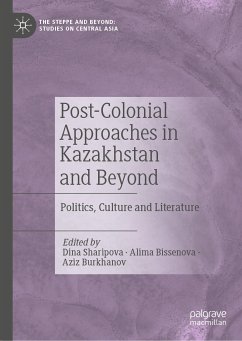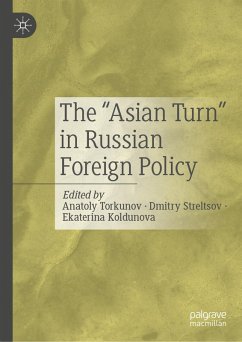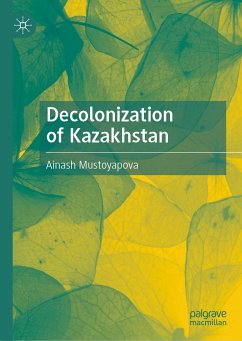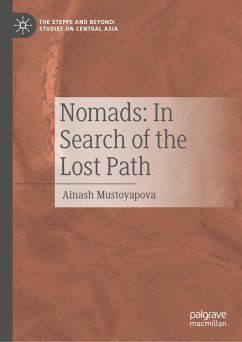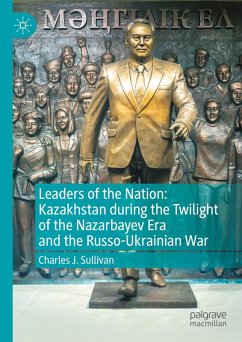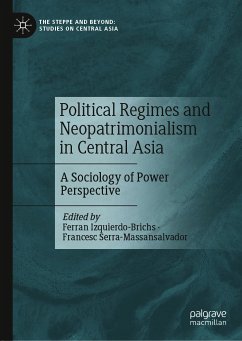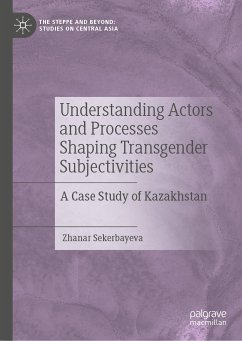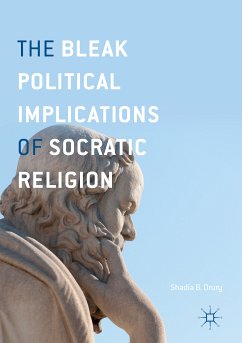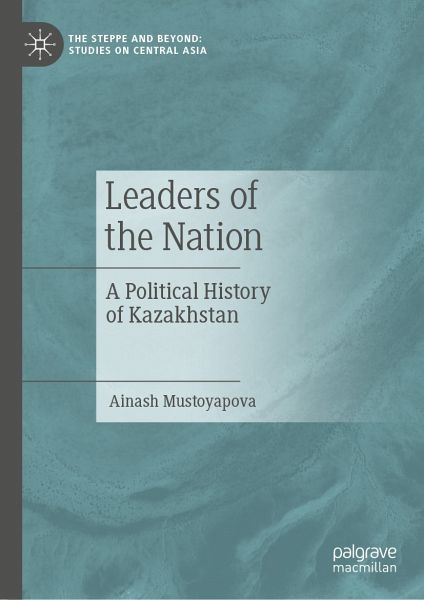
Leaders of the Nation (eBook, PDF)
A Political History of Kazakhstan
Versandkostenfrei!
Sofort per Download lieferbar
104,95 €
inkl. MwSt.
Weitere Ausgaben:

PAYBACK Punkte
52 °P sammeln!
The book tells about people who lived in an era of historical cataclysms, wars and revolutions, changes in political formations. The generation of the Kazakh intelligentsia responded to the historical challenge facing the Kazakhs at a turning point in history. These are people born at the end of the 19th century, educated in different countries and united by the idea of overcoming colonial dependence on the Russian Empire.The author aims to form a holistic view of a galaxy of outstanding personalities who, in an important historical period, were able to take responsibility for the people and t...
The book tells about people who lived in an era of historical cataclysms, wars and revolutions, changes in political formations. The generation of the Kazakh intelligentsia responded to the historical challenge facing the Kazakhs at a turning point in history. These are people born at the end of the 19th century, educated in different countries and united by the idea of overcoming colonial dependence on the Russian Empire.
The author aims to form a holistic view of a galaxy of outstanding personalities who, in an important historical period, were able to take responsibility for the people and their future. The history of the country is perceived through the prism of their destinies, views, activities and death.
The material of the book is a biographical sketch and covers the history of Kazakhstan in the first third of the twentieth century, until the period of the Great Terror (1937-1938).
The author aims to form a holistic view of a galaxy of outstanding personalities who, in an important historical period, were able to take responsibility for the people and their future. The history of the country is perceived through the prism of their destinies, views, activities and death.
The material of the book is a biographical sketch and covers the history of Kazakhstan in the first third of the twentieth century, until the period of the Great Terror (1937-1938).
Dieser Download kann aus rechtlichen Gründen nur mit Rechnungsadresse in A, B, BG, CY, CZ, D, DK, EW, E, FIN, F, GR, HR, H, IRL, I, LT, L, LR, M, NL, PL, P, R, S, SLO, SK ausgeliefert werden.



